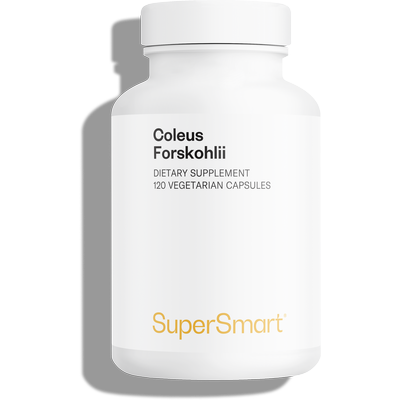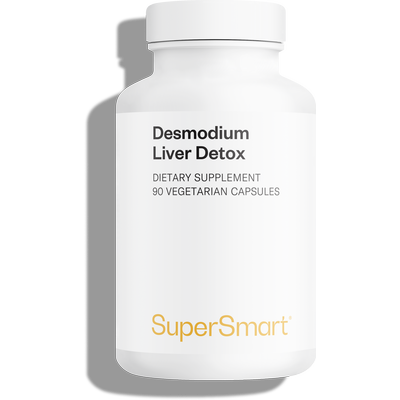02-05-2017
3 medicinal plants for fighting asthma attacks
 On this, World Asthma Day, the World Health Organisation (WHO) reminds us that 235 million people across the globe are affected by this chronic disease 1. Contrary to popular belief, it can develop at any age, manifesting as asthma attacks in which the sufferer has difficulty breathing. These attacks can be triggered by various factors such as atmospheric allergens, tobacco smoke, physical exercise or even intense emotion. While the precise cause of asthma is not yet fully established, a number of therapeutic options have been developed, including natural remedies. Here we look at three medicinal plants that can be useful in preventing or treating asthma attacks.
On this, World Asthma Day, the World Health Organisation (WHO) reminds us that 235 million people across the globe are affected by this chronic disease 1. Contrary to popular belief, it can develop at any age, manifesting as asthma attacks in which the sufferer has difficulty breathing. These attacks can be triggered by various factors such as atmospheric allergens, tobacco smoke, physical exercise or even intense emotion. While the precise cause of asthma is not yet fully established, a number of therapeutic options have been developed, including natural remedies. Here we look at three medicinal plants that can be useful in preventing or treating asthma attacks.
Desmodium adscendens, a plant traditionally used as a remedy for asthma
Beneficial properties for fighting asthma attacks
Though little-known in Europe, the medicinal plant Desmodium adscendens is widely-used for treating asthma in Ghana, Africa. Several studies have also confirmed its therapeutic benefits. One such study conducted in the 1980s highlighted the plant’s anti-anaphylactic properties2 - in other words, its ability to reduce the anaphylactic reactions responsible for asthma attacks. Scientists have also shown that oral administration of Desmodium adscendens may reduce levels of the substances released in asthma.
Active principles with anti-asthma properties
Published in1984 in the Journal of Ethnopharmacology, the results of this first study were later expanded in research conducted in the 2000s. In 2011, a team of scientists succeeded in identifying several active principles in Desmodium adscendens: triterpenoid saponins, phenylethylamines and indole-3-alkyl amines 3. Analysis of these compounds revealed a number of health-beneficial properties including an anti-asthma effect. Additional studies are still in progress but these recent results already provide confirmation of the therapeutic potential of Desmodium adscendens. The benefits of this medicinal plant can be obtained in the form of dietary supplements, including a liquid extract calledDesmo Forte™, available from the Supersmart catalogue.
Ecklonia cava, an alga for combatting asthmatic reactions
The benefits of supplementing with Ecklonia cava
The subject of increasing research over the last few years, algae may also offer benefits to asthma sufferers, with recent studies identifying certain algae as able to inhibit asthmatic reactions. In a mouse study conducted in 2008, for example, scientists investigated the asthma-preventive effects of supplementation with the brown alga Ecklonia cava4. In order to simulate an asthma attack, the researchers exposed the mice to a protein called ovalbumin, triggering various reactions characteristic of an asthma attack, such as:
- - increased numbers of immune system cells called eosinophils in bronchoalveolar lavage fluid ;
- - a marked and sudden influx of inflammatory cells in the lungs, specifically around blood vessels and airways;
- - a narrowing of the airways;
- - development of hyper-responsiveness in the airways;
- - the appearance of several immune molecules in the bronchoalveolar lavage fluid: TNF-alpha and cytokines (IL-4 and IL-5)
- - the presence in serum of the specific antibody immunoglobulin E or IgE.
Therapeutic potential of Ecklonia cava
This particular alga may have other medical applications over and above its efficacy against asthmatic reactions. Scientists have shown that an Ecklonia cava-based treatment reduced concentrations of matrix metalloproteinase-9 (MMP-9), a marker of inflammation observed in several diseases including atherosclerosis. This alga’s therapeutic potential is actually discussed in our articles: ‘A plan of attack against atherosclerosis’ and ‘Put an end to chronic inflammation’.
Coleus Forskohlii, an Ayurvedic herb for preventing asthma attacks
Used in traditional Indian medicine, the Ayurvedic herb Coleus Forskohlii has attracted scientific interest for its potential in combatting asthma attacks. This medicinal herb contains a powerful active principle called forskolin. Forskolin has been extensively-studied by a Mexican research team whose findings were published in 2006 and 2010 in the Journal of International Medical Research5,6. In the first of their studies, the researchers compared the effects of forskolin with those of sodium cromoglicate, a drug used to treat allergies. For six months, they monitored several patients with varying degrees of persistent asthma, some of whom were given a daily 10mg dose of forskolin, while others were treated with sodium cromoglicate inhalation. By the end of the study, the forskolin-supplemented patients were found to have suffered fewer asthma attacks than those treated with sodium cromoglicate. Encouraged by these preliminary results, the researchers continued their investigations into forskolin. In 2010, they published a comparison of the effects of this active principle with those of the asthma drug beclomethasone. In this two-month study, in which 60 asthma patients were either given 10mg forskolin a day, or treated with beclomethasone inhalation, the efficacy of forskolin in preventing asthma attacks was again confirmed. As a result of this research, forskolin supplements have been developed with the aim of making daily life for asthmatics a little easier. Among the products available is a supplement offered by Supersmart which has been developed from a natural extract of Coleus forskohlii standardised to 10% forskolin.
> Sources:
1. Organisation Mondiale de la Santé (OMS), Affections Respiratoires Chroniques, Asthme, 2017.
2. Addy ME, Awumey EM, Effects of the extracts of Desmodium adscendens on anaphylaxis, J Ethnopharmacol. 1984 Aug;11(3):283-92.
3. Rastogi S, Pandey MM, Rawat AK, An ethnomedicinal, phytochemical and pharmacological profile of Desmodium gangeticum (L.) DC. and Desmodium adscendens (Sw.) DC, J Ethnopharmacol. 2011 Jun 22;136(2):283-96.
4. Kim SK et al., Effects of Ecklonia cava ethanolic extracts on airway hyperresponsiveness and inflammation in a murine asthma model: role of suppressor of cytokine signaling, Biomed Pharmacother. 2008 Jun;62(5):289-96.
5. González-Sánchez R, Trujillo X, Trujillo-Hernández B, Vásquez C, Huerta M, Elizalde A, Forskolin versus sodium cromoglycate for prevention of asthma attacks: a single-blinded clinical trial, J Int Med Res. 2006 Mar-Apr;34(2):200-7.
6. Huerta M, Urzúa Z, Trujillo X, González-Sánchez R, Trujillo-Hernández B, Forskolin compared with beclomethasone for prevention of asthma attacks: a single-blind clinical trial, J Int Med Res. 2010 Mar-Apr;38(2):661-8.
Order the nutrients mentioned in this article

Standardised extract 10% forskolin, restores sensitivity to hormone receptors
www.supersmart.com
Premium extract of Desmodium adscendens, a true guarantor of liver health
www.supersmart.comFurther reading
14-03-2017
Allergies affect between 30% and 40% of the world’s population. They have multiple causes and take various forms such as food allergies, allergic rhinitis, asthma,...
Read more29-03-2012
Sneezing, watery eyes, scratchy throat, runny nose – spring must be here! The good news is that long-lasting relief from the classic symptoms of seasonal...
Read more28-02-2018
History has a habit of repeating itself. Just like coeliac disease and fibromyalgia before it, gluten sensitivity has attracted scepticism from certain health professionals, who...
Read more© 1997-2025 Fondation pour le Libre Choix
All rights reserved
All rights reserved
Free
Thank you for visiting our site. Before you go
REGISTER WITHClub SuperSmart
And take advantage
of exclusive benefits:
of exclusive benefits:
- Free: our weekly science-based newsletter "Nutranews"
- Special offers for club members only

















